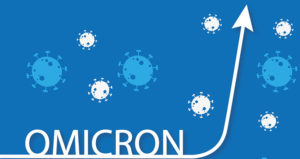Poliovirus detected in wastewater across Europe

-
 Esther Rasenberg
Esther Rasenberg
Share article:
Public health authorities in Finland have reported the detection of poliovirus in wastewater samples, marking the latest in a series of similar findings across Europe. Between September and November 2024, wastewater samples in Spain, Poland, Germany, and the United Kingdom also tested positive for poliovirus. Despite these detections, no human cases have been reported in Europe.
The European Centre for Disease Prevention and Control (ECDC) announced the latest findings in a Press Release on the 13th of December. Germany, Poland, Spain and the United Kingdom have also reported detection of vaccine-derived poliovirus type 2 in wastewater samples recently. This can spread when people have used an oral polio vaccine. This oral vaccine contains a live, weakened form of the poliovirus. After vaccination, the virus replicates in the intestines and can be found in feces. This poses the risk of spreading in areas with poor sanitation and where people are not vaccinated.
Poliovirus detected in growing amount of EU cities
Spain reported the detection of vaccine-derived poliovirus in Catalonia in wastewater samples collected in mid-September from the Barcelona Metropolitan area. Polish public health authorities reported on the 18th of November the presence of the vaccine derived poliovirus in a municipal wastewater sample, collected in Warsaw. In Germany the vaccine-derived poliovirus type 2 was found in wastewater samples from seven different cities. The Finnish public health authorities reported that vaccine-derived poliovirus type 2 was detected in wastewater samples in Tampere. Meanwhile, the United Kingdom reported that vaccine derived poliovirus type 2 was detected in Leeds, London and West Essex.
Maintaining high vaccination rates is key
To prevent the reintroduction and sustained transmission of poliovirus on the European continent, public health experts stress the importance of high vaccination coverage, particularly among children. The inactivated polio vaccine (IPV), administered as part of routine childhood immunization programs, is critical in this effort. Health authorities are urged to review vaccination coverage data, paying particular attention to subnational variations, to identify and address any immunity gaps. They should also ensure that surveillance systems, including those monitoring acute flaccid paralysis and environmental samples, are robust and capable of effectively detecting and responding to poliovirus circulation. Additionally, efforts must be strengthened to improve immunization information systems, enabling the identification of individuals who remain unvaccinated or partially vaccinated.
Dashboard for worldwide polio cases
ECDC continues to track the poliovirus situation, providing monthly updates through its communicable disease threat reports. A dedicated dashboard highlights countries where polio remains endemic or where circulating vaccine-derived poliovirus (cVDPV) outbreaks are ongoing. ECDC is working closely with national authorities in Europe and the World Health Organization (WHO) Regional Office for Europe to implement the Global Polio Eradication Initiative, aiming to safeguard the region from poliovirus reintroduction. Public health authorities emphasize that sustained vigilance and proactive vaccination efforts are essential to keeping Europe polio-free.
Detecting poliovirus is not new in Europe
Detecting the poliovirus in Europe’s wastewater is not new. A variant of the poliovirus was also detected in June 2022 in sewage samples collected from the London Beckton Sewage Treatment Works. The virus was found during routine surveillance and it involved a new variant of the poliovirus indicating there may have been spread between closely-linked individuals.


















